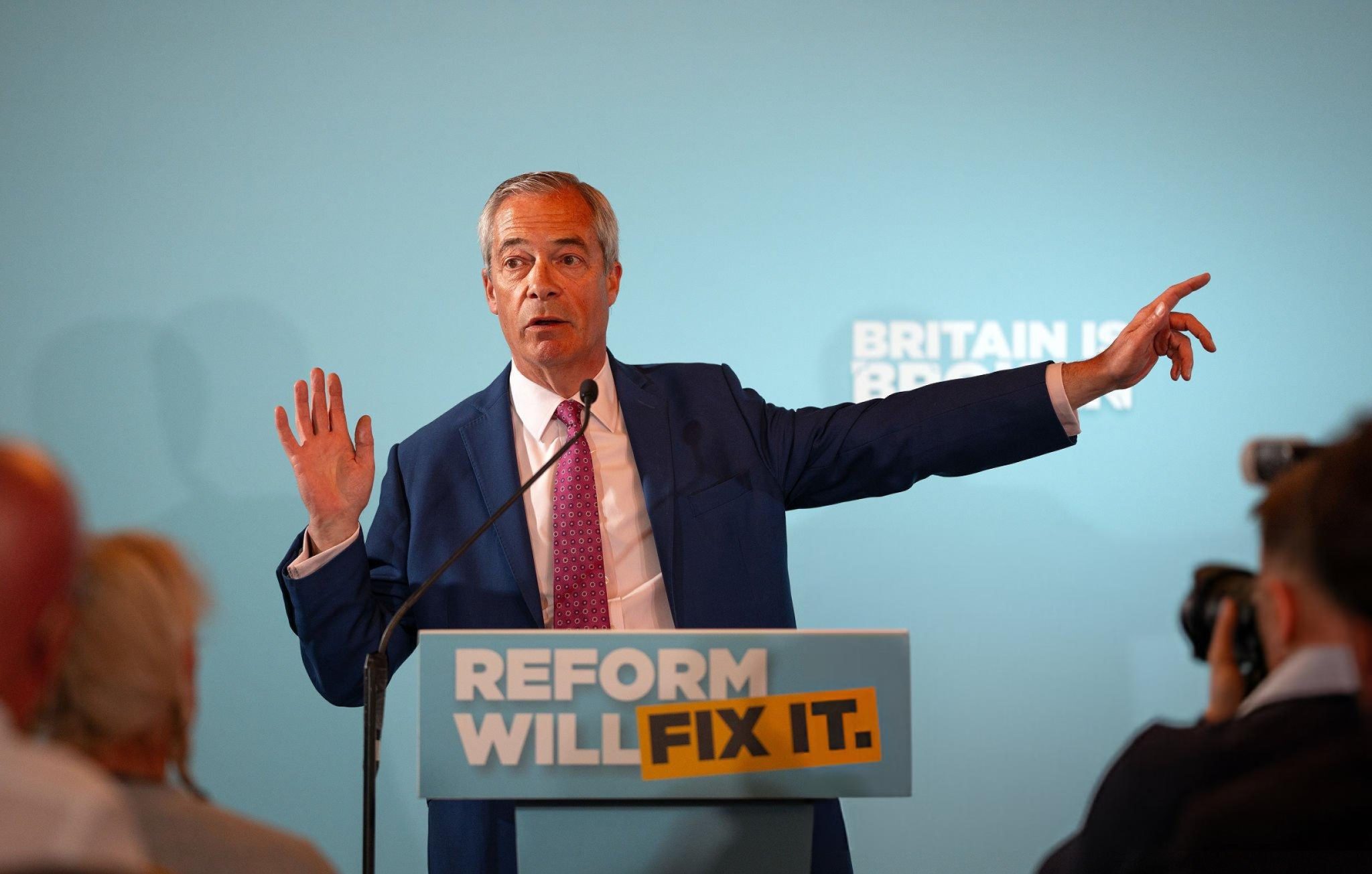Nigel Farage has claimed Reform UK could be on the cusp of a major political upset in the upcoming Runcorn and Helsby by-election, expressing growing optimism that the party can outpace Labour in a constituency once deemed a Labour stronghold.
“Every time I go back, I feel the gap with Labour is closing,” Farage told Times Radio. “We are going out to win and we have got a chance of doing it.” The Reform UK leader, who has visited the Cheshire seat three times during the campaign, insists momentum is on his side ahead of the 1 May vote.
The by-election, triggered by the resignation of Labour MP Mike Amesbury—who stepped down following a suspended prison sentence for assaulting a constituent—has drawn national attention. Amesbury had comfortably held the seat in the 2024 general election, securing over 22,000 votes to Reform’s 7,662. However, the scandal surrounding his departure has opened the door for a political shake-up.
Polling expert Sir John Curtice, professor of politics at Strathclyde University, said a Reform victory would be “significant” and represent a breakthrough that UKIP—Reform’s predecessor—never managed in a similar context.
“UKIP never won a parliamentary by-election unless it was a Tory defection,” Curtice explained. “If Reform win Runcorn and Helsby, it’s a new milestone.”
Two separate MRP polls have fuelled speculation, with one favouring Labour and the other tipping Reform for victory—highlighting just how close the contest could be. Curtice noted that the outcome could hinge on how effectively Reform attracts protest votes from disillusioned Tory and Labour supporters.
Sir Keir Starmer has called the by-election “tough” and, notably, has yet to visit the constituency—a sign some see as Labour’s nervousness over the result. Meanwhile, the Conservative Party appears to be out of the running, trailing far behind in recent polls.
Coinciding with the by-election are broader local elections across England. Voters will also head to the polls in 23 council areas and six mayoral contests. Reform UK is expected to make gains nationally at the expense of the Conservatives, and potentially Labour, as Farage positions his party as the new force in British politics.
A YouGov poll published on Tuesday placed Reform on 26%, with Labour on 23%, the Tories on 20%, the Liberal Democrats at 15%, and the Greens on 9%. While promising for Farage, Sir John Curtice cautioned that Reform still faces the challenge of converting national support into actual seats.
“The key question is: can Reform translate its rising poll numbers into real political power, particularly in local councils and mayoralties?” Curtice asked.
The Conservatives, who are defending over 900 council seats, face a daunting task. Lord Hayward, a Tory peer and polling expert, estimates the party could lose around 500 seats. Such a result would represent a dramatic fall from the last time these local seats were contested—when Boris Johnson’s popularity and the successful Covid vaccine rollout saw the party riding high.
Conservative leader Kemi Badenoch has attempted to rally the party’s base, warning of heavy losses while urging members to “fight for every single vote.”
As for Labour, they are defending around 280 seats. Sir Keir Starmer acknowledged the uphill battle: “Most governments after a general election face a tough set of local elections,” he said, seemingly setting expectations low ahead of what could be a bruising day at the polls.
Whether or not Farage can pull off a historic win in Runcorn and Helsby remains to be seen—but with national attention fixed on this Cheshire battleground, May 1 could mark a turning point in Reform UK’s rise.






